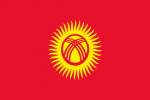Kyrgyzstan: President Demands Russians Respect His Countrymen
Rédigé par manager - - aucun commentaire
“Simple Kyrgyz families shared their last scraps of bread and clothes. Many evacuees remained in the country for good and became citizens of Kyrgyzstan,” Atambayev was cited as saying by K-News website. “So today I would like for this to be remembered by citizens of our brotherly nation, Russia, where modern fascists — skinheads — are raising their heads.”
The remarks were clearly inspired by a vicious group assault earlier this months on citizens of Kyrgyzstan traveling on the Moscow metro.
Russian state news agency RIA-Novosti cited the police as saying the attack was almost certainly racially motivated.
“They were all shaven-headed, wore heavy military-style boots. On their phones we found photographs of them holding up their arms in a Nazi salute and showing off weapons. Moreover, three of the four [attackers] were underage,” a police source told the agency.
A video posted on the Interior Ministry YouTube channel shows a worrying exchange between a police interrogator and one of the presumed attackers.
“What have you been detained for?” one young man, whose face has been hidden to protect his identity, is asked.
“I and a group of us beat up people of non-Slavic appearance on the Moscow metro.”
“Why did you beat them up?”
“For the nation, and for personal reasons,” said the young man, claiming he had previously been attacked by unidentified foreigners. Asked if he had picked the victims for his revenge at random, the young man answered that he had.
“They all look the same to me,” he said.
Alexander Brod, the head of the Moscow Bureau for Human Rights, told RIA-Novosti in January that there had been no notable increase in xenophobic attacks on migrants in recent times, but that this could change.
“There has been a decline in people’s quality of life. There are still serious gaps in the government’s youth policy, there are issues with unemployment, nurturing children and education. In these tough conditions, society will look for targets at which to vent their dissatisfaction, protest mood and aggression. These targets may once again be migrants and ethnic minorities — a renewed surge in radical nationalism and xenophobia is possible,” Brod told RIA-Novosti.
Indeed, chauvinism in Russia has since the unrest in Ukraine been comprehensively redirected at the country’s perceived antagonists to the west, be it in Ukraine itself or at Europe and the United States.
Last year did see a considerable reduction in racist violence in Russia, according to the Sova center, which closely monitors the issue. One explanation offered by Sova is that police have intensified their pressure on extremist nationalist movements, possibly in an effort to minimize their scope for reabsorbing returnees from fighting in Ukraine into their ranks and thereby posing a threat to political stability.
While it is genreally unwise to lend too much (if any) importance to comments posted under news articles on the Internet, there is one worth highlighting beneath the RIA-Novosti news piece on the Moscow attack and which reflects an apparent consensus in some sections of Russian society.
“What do you expect? In Moscow there are more Tajiks and Uzbeks than Russians, and when you consider that 60 percent of crimes in Moscow are committed by ‘guests’ from Asia — and they show this all on TV, either a child is being beheaded or a the head of police is murdered with his family — then the youth will of course become angry,” wrote one commenter under the name Pavel Demidenko.
The claims are absurdly far off the mark when one considers that official data for the first half of 2015 showed that only 2.2 percent of crimes registered in Russia were committed by non-Russians.
Russian state media attempts half-heartedly and clumsily, while often failing, to temper xenophobic sentiments by downplaying or ignoring incidents involving migrants from the former Soviet Union. After the recent grisly murder of a five-year old girl in Moscow at the hands of an allegedly mentally disturbed Uzbek nanny, state media implemented a blackout on the event.
"It is not something that should be covered in the media… I fully agree with the decision of these channels,” Kremlin spokesman Dmitry Peskov said in comments cited by International Business Times at the time.
And yet elsewhere, Kremlin channels are given free rein to run lurid stories about exotic and sinister occurrences in the near-abroad. In January, Russian state television station Channel One cited the deputy consul at the Russian Embassy in Kyrgyzstan for a story about two young ethnic Slavic children allegedly being kidnapped and sold off to organ traffickers after the death of their mother. (British tabloid The Daily Mail gleefully ran the story without any fact-checking).
Like a lot of the fear-mongering about foreigners that features on Russian television these days, the story turned out to be devoid of substance, as revealed by the sterling journalistic efforts of Radio Free Europe/Radio Liberty’s Kyrgyz service.
For all the problems that migrants can face, they are left with no choice by endure the gauntlet of Russian bureaucracy, police harassment and chauvinism.
In his Victory Day speech, Atambayev emphasized that his countrymen went to Russia not out of choice, but of need.
“After the collapse of the Soviet Union, badly thought-out economic policies forced hundreds of thousands of our citizens to leave to work in Russia. They are not asking to be fed out of generosity, to be given a scrap of bread or a roof over their heads. They are forced to make a living for themselves and for their families. All the while they are contributing the Russian economy,” Atambayev said. “They have the right to expect more respectful treatment from Russians, something similar to what Russian refugees were offered during the war.”
Commentaire de RSAC : Il est peu connu le fait que des pays d'Asie centrale ont accueilli des réfugiés russes durant la dernière guerre mondiale.
Copyright ©EURASIANET - Mots clés : aucun
